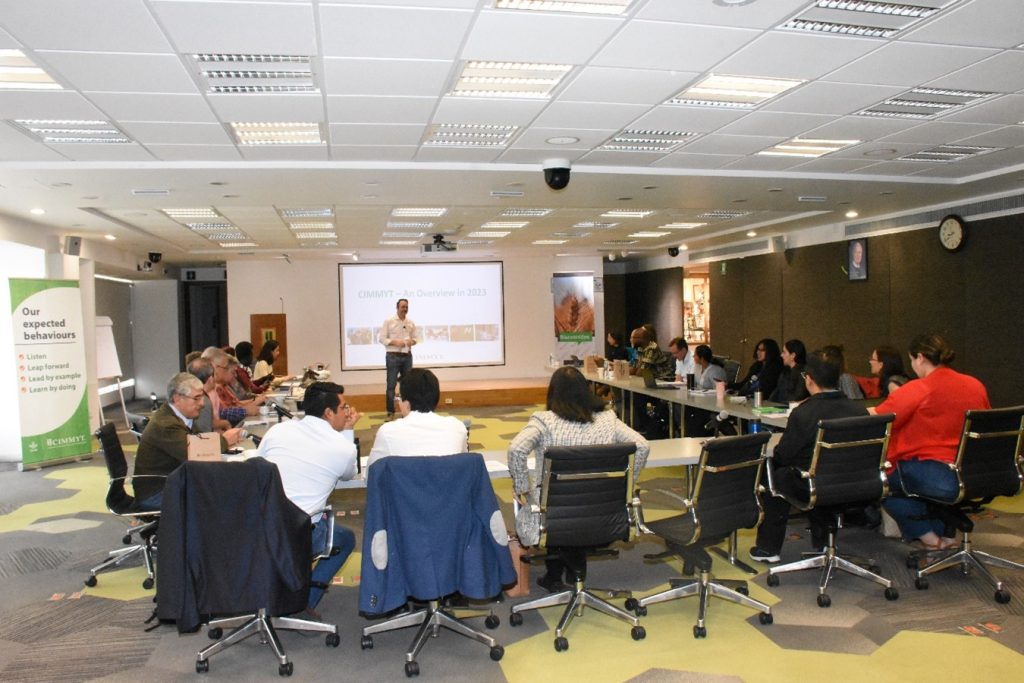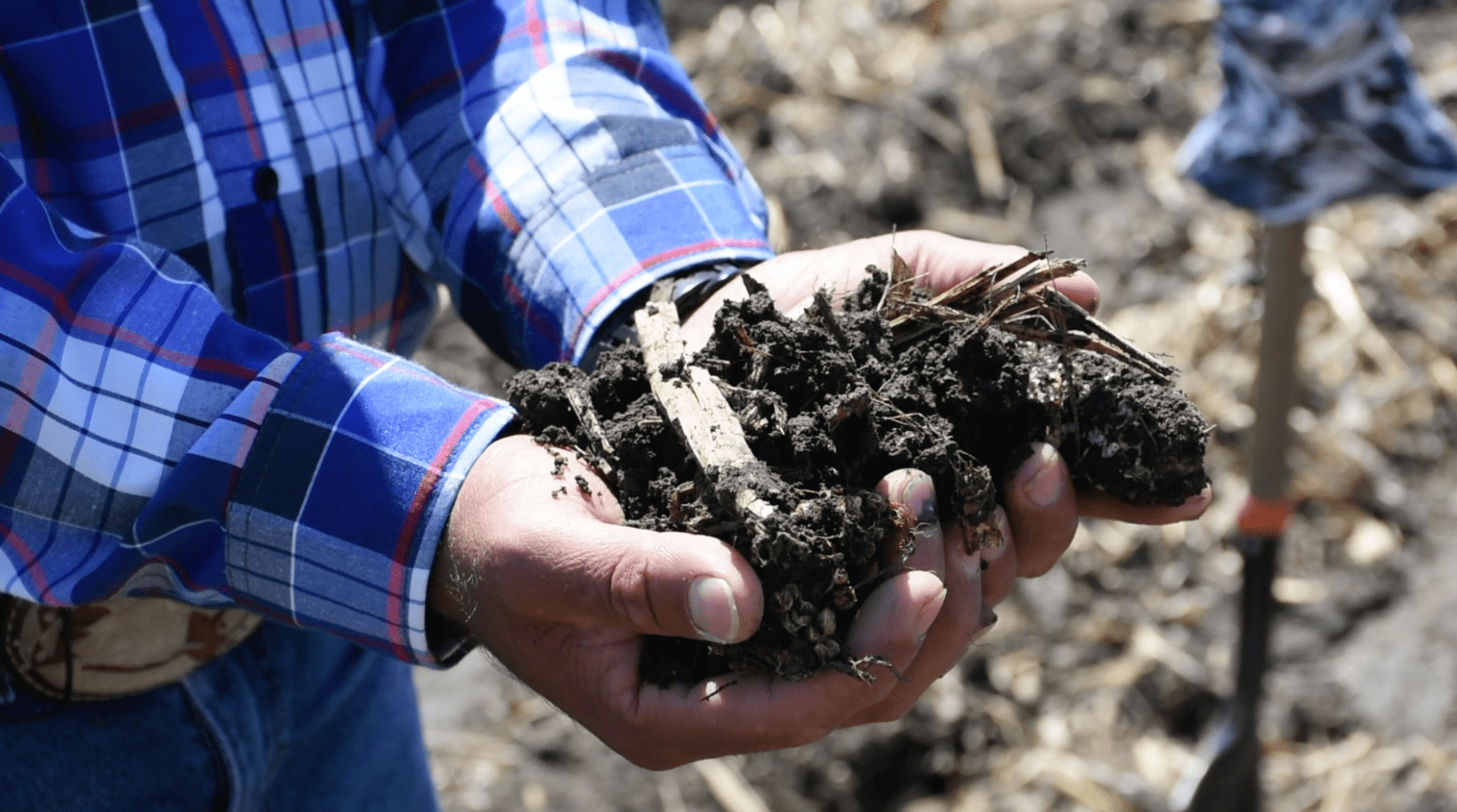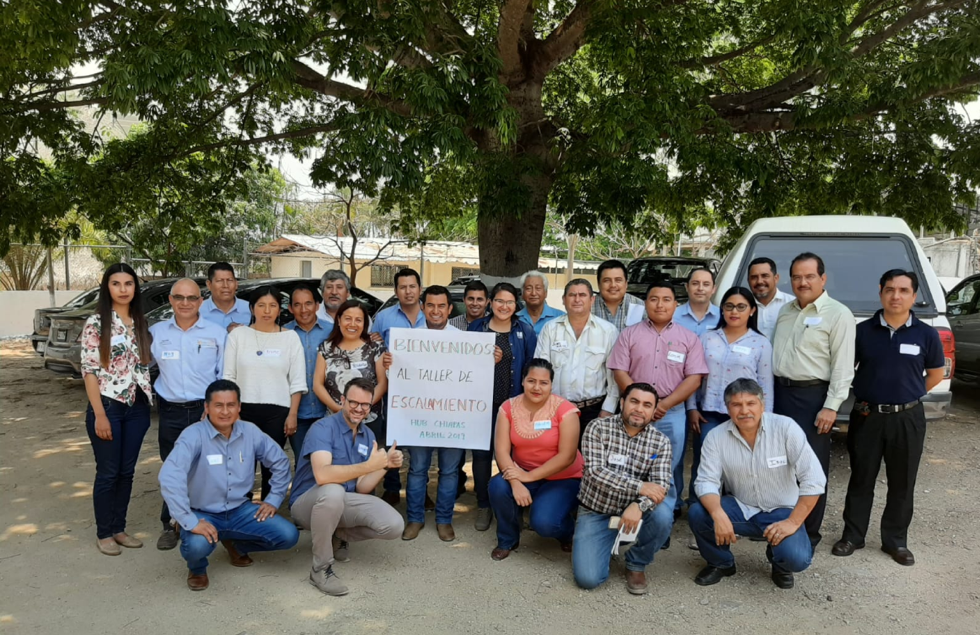On May 26, 2023, representatives from the International Maize and Wheat Improvement Center (CIMMYT) and the Deutsche Gesellschaft für Internationale Zusammenarbeit (GIZ) hosted a scaling networking event at CIMMYT headquarters in Texcoco, Mexico. This event marked the culmination of a Scaling Readiness Training organized by the One CGIAR Portfolio Performance Unit (PPU), which included 30 participants from various CGIAR centers working on various One CGIAR Initiatives.
Consequently, the Scaling Networking Event was happy to bring together scaling experts from the CGIAR training together with other experts from GIZ, CIMMYT, and other academic and non-governmental organizations. The participants exchanged learnings, ideas, and methodologies for scaling agricultural innovations. Fortunately, this did not remain just an abstract exercise as the attendees were also eager to explore future joint scaling projects. Because collaboration is one of the most important factors in scaling innovations, the purpose of the event was to establish new collaborative initiatives and partnerships.
GIZ and CIMMYT have a long history of collaboration in Mexico and elsewhere. In Africa, for example, a group of mechanization specialists from CIMMYT recently provided training in this area to strengthen the work of the GIZ Green Innovation Centers for the agricultural and food sectors. In this event, both organizations explained what they meant by scaling and how they have worked on it using tools such as the Scaling Scan. The Scaling Scan is another example of the collaboration between GIZ and CIMMYT (and the Netherlands Development Organization SNV) and is a tool that analyzes bottlenecks and opportunities in scaling and innovation.
Both organizations noted a need to explore a wider space to connect sectors and actors interested in scaling innovations developed by agricultural research. Looking at different scaling approaches, the Scaling Readiness framework was presented as the official scaling practice in One CGIAR. Also, the University of Chapingo and the Universidad Iberoamericana in Mexico showed the tools they are using from analyzing social networks and Geographical Information Systems. They showed the connections with people that scaling requires and the importance of basing scaling assessments on quantitative data.

The Mexican Center for Philanthropy (CEMEFI) and GIZ Mexico also discussed the difficulties that come with deciding what to scale and how to do so responsibly. Given current environmental concerns, GIZ Mexico emphasized the need to scale technologies at the intersection between biodiversity and agriculture. CEMEFI started a dialogue among scaling specialists about how to scale while also taking social factors into account. The major topics that came out of this discussion were the need to engage communities more, spend time with them planning interventions, and examine power relations.
As part of this event, scaling practitioners from three One CGIAR Research Initiatives, of which CIMMYT is a member, presented their scaling reflections. They shared their work and some research questions that are now being investigated in the Digital Initiative, the Latin American “AgriLAC” Initiative, and the Mitigation Plus Initiative. Some of the questions addressed in the event included what criteria should be chosen to select innovations, how to bring different scaling processes together, and finally, how to develop scaling strategies that could be supported by the digital and technological enabling conditions and tools.
Before the event concluded, the participants still had sufficient energy to debate and support the idea of creating a Latin American scaling community of practice to continue exchanging scaling experiences in the region, not only with partners but between scaling researchers and practitioners. The expected result would be to strengthen scaling work so that the most relevant practices to make agri-food systems resilient and sustainable could be adopted, adapted, or transformed to suit each community and its needs in each context.
What then were the final learnings for this event? The importance of scaling with partners; the need to address social inclusion in scaling by understanding power relations; and the sharing of varied scaling experiences and processes. All of this was highlighted at the end of the meeting, which gave closure to the day but an initial drive towards future potential collaborations that were created out of it.

 Climate adaptation and mitigation
Climate adaptation and mitigation 